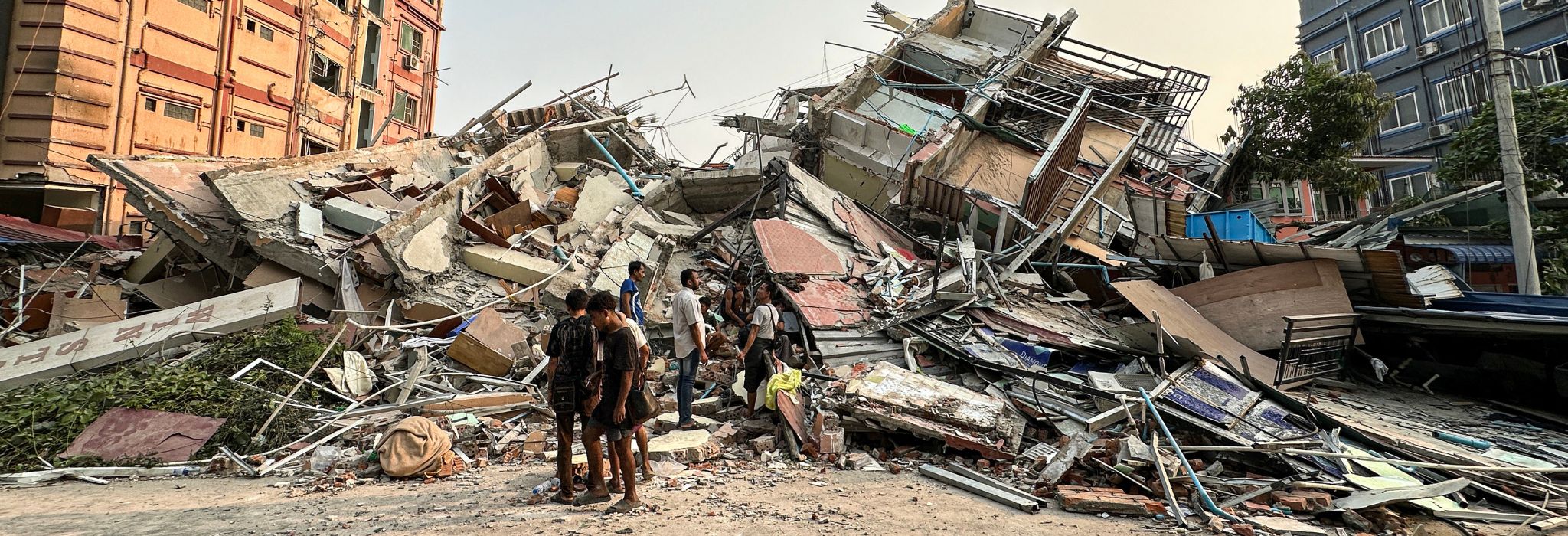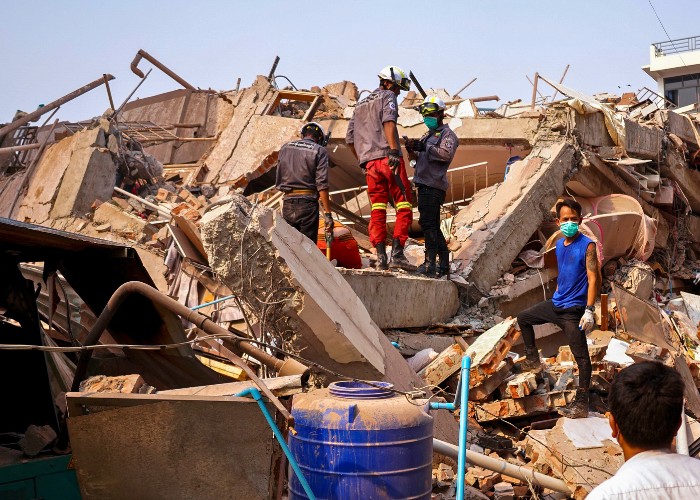A powerful 7.7 magnitude earthquake has devastated huge areas of Myanmar. Survivors urgently need critical support. Please donate now.
More than 3,000 people are confirmed dead, but the death toll continues to rise. Hundreds of people are missing. Many more have no access to the safe shelter, clean water and food they need to survive.
Countless roads and buildings have been destroyed, including hospitals, schools and water supplies. Network and power lines are down. People are cut off from vital services.
Myanmar was already facing a severe humanitarian crisis with a third of the population in need of humanitarian aid. One in four people didn’t have enough to eat. Now the situation is catastrophic.
DEC charities, including Action Against Hunger, are already on the ground in affected communities and are working hard to access remote areas.
“We’re very concerned about the devastating consequences this earthquake may have on the local population.”
Please donate to the DEC Myanmar Earthquake Appeal to ensure we can get urgent help to people who need it most.




